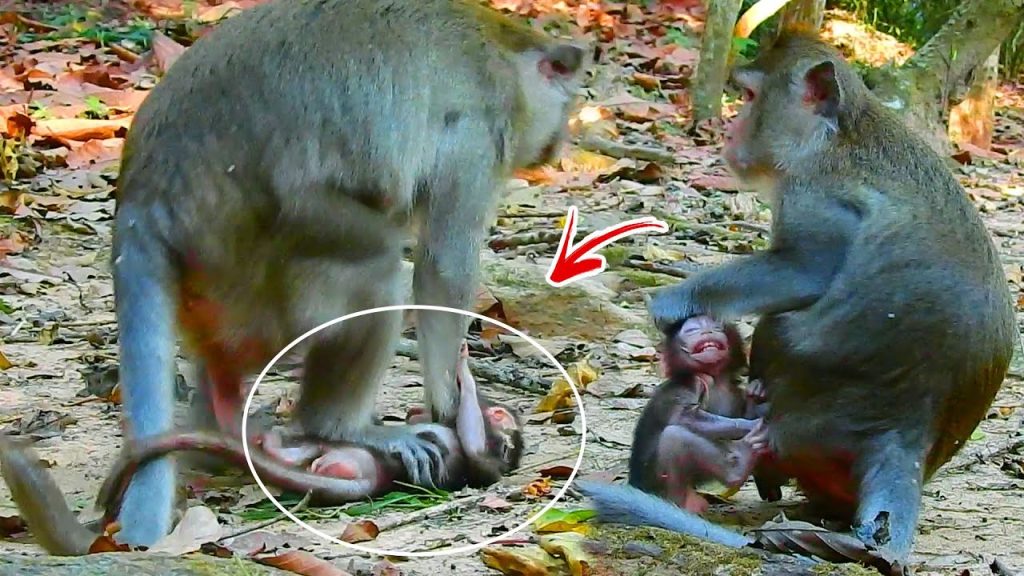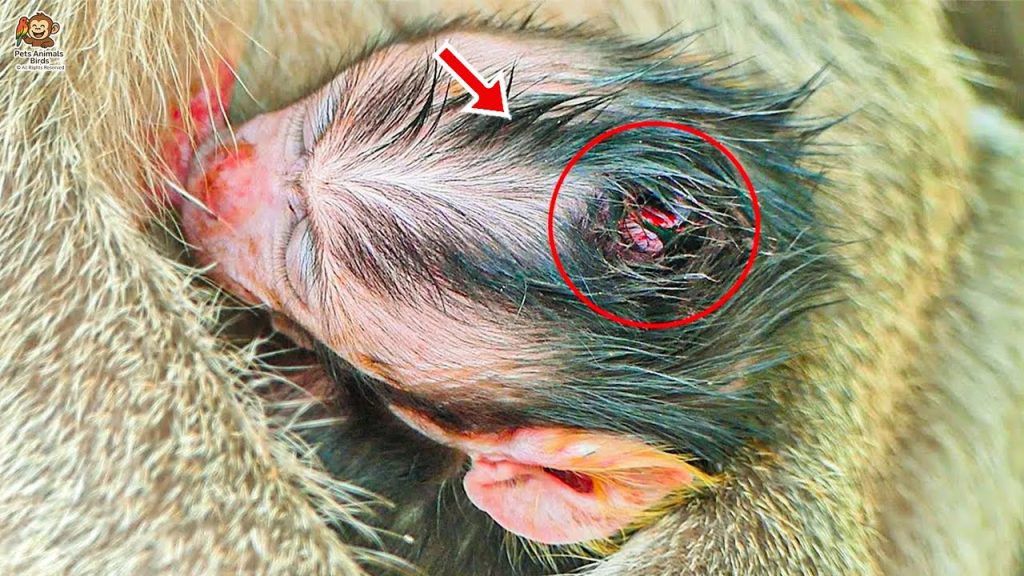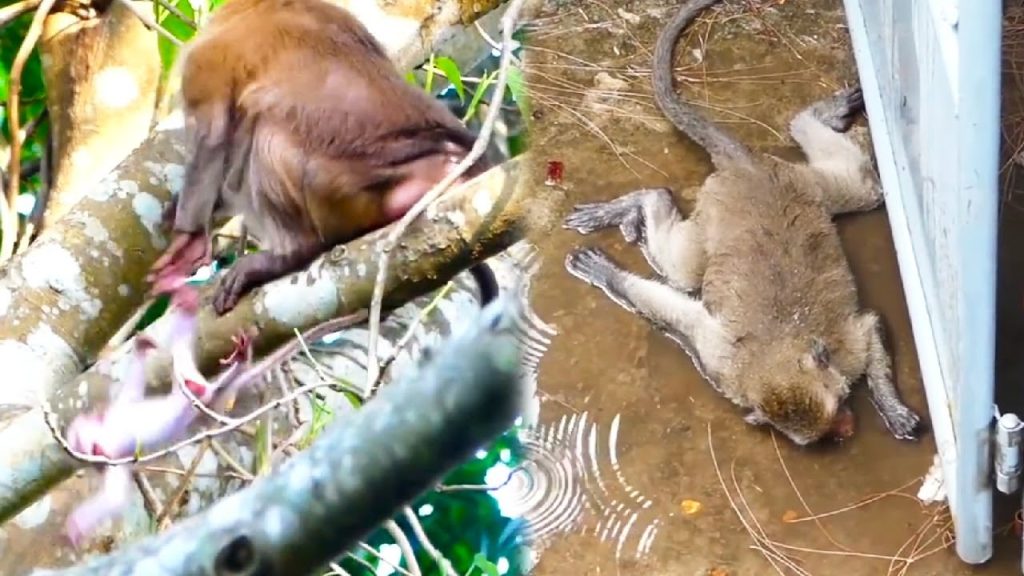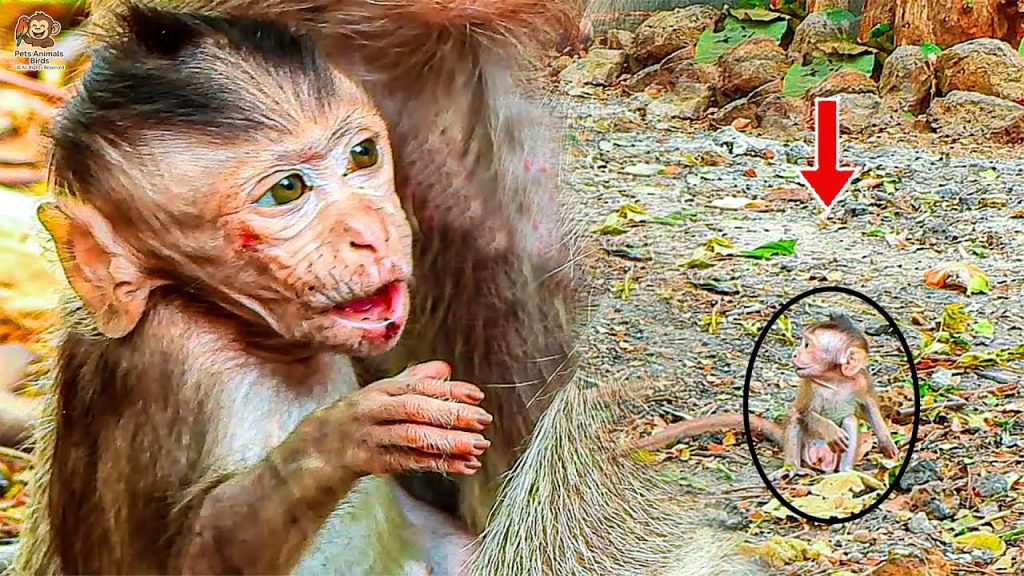
It was a heartbreaking and confusing scene in the monkey troop—one that left everyone silent and still. Baby Ara, a small and innocent young monkey, was suddenly attacked by her mother, Anna, for no clear reason. What began as an ordinary, peaceful afternoon turned into a moment of fear and sadness that no one expected.
Ara had been playing quietly nearby, exploring the ground, picking up leaves, and occasionally glancing back at her mother for reassurance. But without warning, Anna turned aggressive. She grabbed her baby roughly, shaking and striking her several times. Ara’s terrified cries filled the air, high-pitched and desperate. The little one tried to cling to her mother, seeking safety, but Anna pushed her away again. To see a mother treat her baby like that was painful, almost unbearable.
In nature, mother monkeys are usually gentle, caring, and fiercely protective of their young. When one suddenly becomes violent, it often signals deeper stress or confusion. Anna may have been overwhelmed—perhaps by competition in the group, lack of food, or the tension of raising a baby in a noisy, crowded environment. Sometimes, when a mother feels threatened or exhausted, she may redirect her frustration toward her baby, even though the infant has done nothing wrong.
Baby Ara’s cries eventually softened into quiet sobs. She sat trembling, her tiny body pressed low to the ground. Her eyes, full of confusion and pain, searched for comfort, but none came. For a moment, she seemed completely alone. Some of the other females in the troop looked on, uneasy but unsure whether to intervene. In monkey society, interfering between a mother and her baby can be risky, even dangerous. Still, a few older females moved closer, watching carefully, ready to protect the baby if things worsened.
After a while, Anna seemed to realize what she had done. Her breathing slowed, and she looked down at her frightened baby. Slowly, she approached Ara again—not aggressively this time, but with a hesitant calm. She reached out her hand and began to groom the baby’s fur. Ara flinched at first but didn’t run. As Anna continued grooming, her movements softened, and Ara relaxed little by little. Though the earlier violence couldn’t be erased, this quiet gesture seemed like an unspoken apology—a mother trying to make things right.
Such moments are difficult to witness but not uncommon among primates. Just like humans, animals experience stress, confusion, and emotional outbursts. Their relationships are complex, filled with both love and conflict. What matters is that, in most cases, the bond between mother and child endures. Even after moments of aggression, many mothers return to nurturing behavior, proving that love and instinct still guide them.
Baby Ara’s experience was one of pain and fear, but it also showed the fragile and emotional nature of motherhood in the animal world. Anna’s harsh reaction may never be fully understood, yet her eventual tenderness suggested that, deep down, she still loved her baby. The road to healing may take time, but in the end, even small acts of care can mend the deepest hurt.


